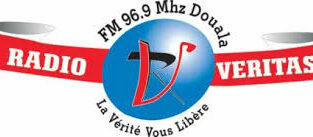The Pontifical Council for Social Communication, which Pope Francis merged into the Dicastery for Communication in 2016, consistently encouraged Catholic media to engage with media from other Christian denominations, particularly those not in communion with Rome. Among its numerous recommendations, Catholic media are urged to:
– Foster Mutual Understanding: Help both Catholics and non-Catholics better understand one another by presenting accurate and respectful information about other Christian denominations.
– Maintain Accuracy: Communicate facts accurately without misrepresenting or distorting the beliefs and practices of other Christian denominations.
– Promote Respectful Dialogue: Encourage respectful dialogue while avoiding inflammatory or polemical content.
– Highlight Shared Values: Focus on shared beliefs and values while acknowledging differences without hostility.
– Avoid Aggressive Proselytism: Refrain from disrespectful or coercive attempts to convert others. Instead, the emphasis should be on fostering understanding and genuine interest in the Catholic Church’s teachings.
– Collaborate on Common Issues: Encourage partnerships with media from other Christian denominations on shared moral, social, and cultural concerns, such as promoting human dignity, defending human rights, and advocating for peace and justice.
– Learn from Others: Be open to the experiences, traditions, and insights of other Christian denominations to gain a deeper understanding of the diverse ways in which the Christian faith is expressed and lived.
– Advance Ecumenical Goals: Serve as a bridge to advance the goals of ecumenism by informing, educating, and inspiring the faithful while engaging respectfully with Christians of other traditions.
– Present Church Teachings Clearly: Play a vital role in presenting the Church’s doctrines clearly and authentically to prevent misrepresentation or misunderstanding in ecumenical discussions.
An example of this ecumenical spirit can be seen in the work of Christian Cardinal Tumi, the late emeritus Archbishop of the Archdiocese of Douala in Cameroon. Peace to his soul! When he established Radio Veritas in Douala about 20 years ago, he prioritised engagement with the media of other Christian denominations. He allocated specific broadcast hours to Christians of other churches, and the Église Évangélique du Cameroun quickly joined, maintaining a notable presence ever since.

Surprisingly, resistance to such collaboration came from the then few Catholic radio stations in Yaoundé. The intention was for Catholic radio stations to connect during news programmes, enabling listeners in Douala to follow news from Catholic stations in Yaoundé and vice versa. Suspicion and outright hostility scuttled attempts at inter-Catholic collaborations which some of us had hoped would grow and mature in media communication in Cameroon. Hopefully, with the proliferation of Catholic FM radio stations across the country, notably, Radio Evangelium in the Archdiocese of Bamenda, the Dioceses of Kumbo, Mamfe, and Kumba, and Divine Mercy Radio in the Diocese of Buea, such inter-Catholic media collaboration will soon materialise.
In conclusion, Catholic media serves as a powerful vehicle for promoting understanding, reconciliation, and collaboration among Christian denominations. Through respectful engagement, accurate information, and positive portrayals of ecumenical initiatives, Catholic media fulfill the Church’s mission to advance Christian unity, in keeping with Jesus’ prayer “that all may be one” (John 17:21).


